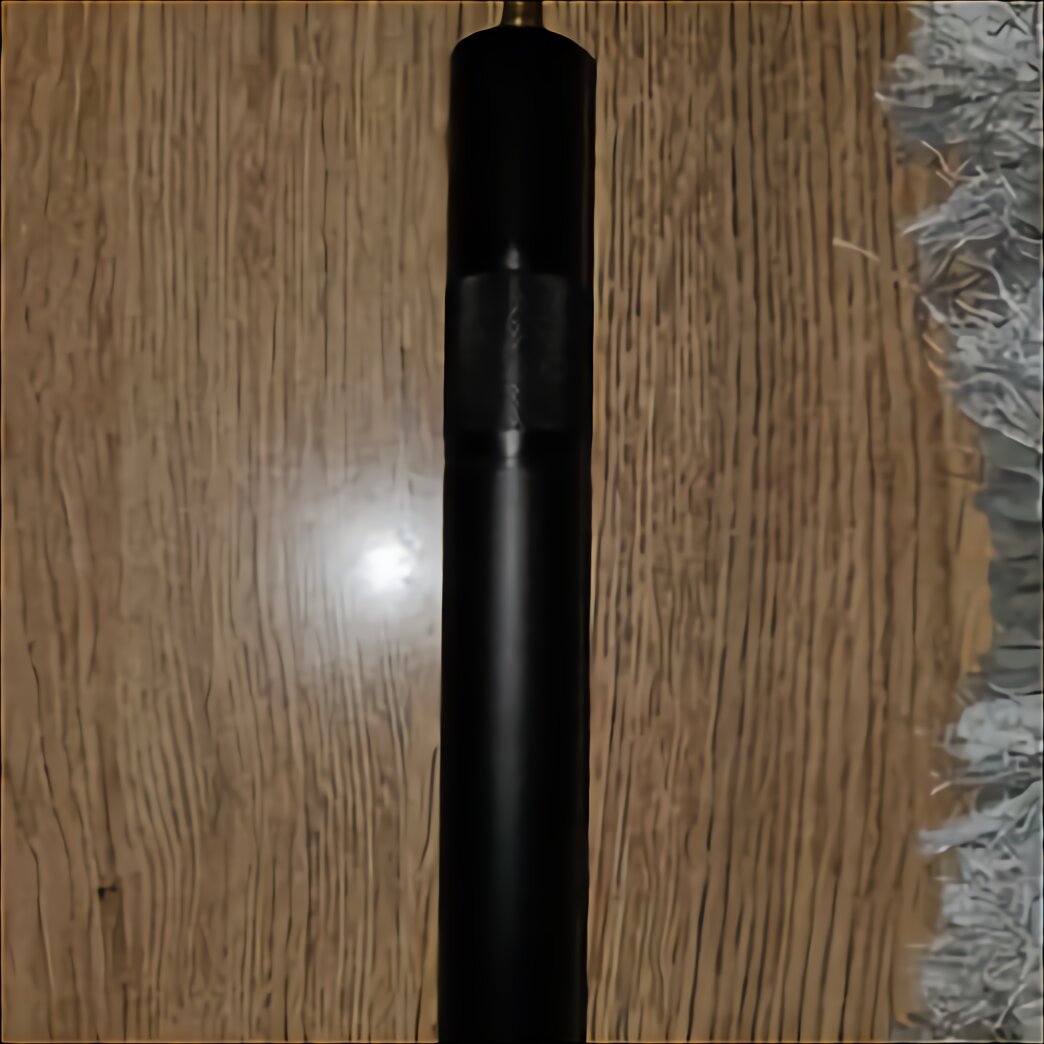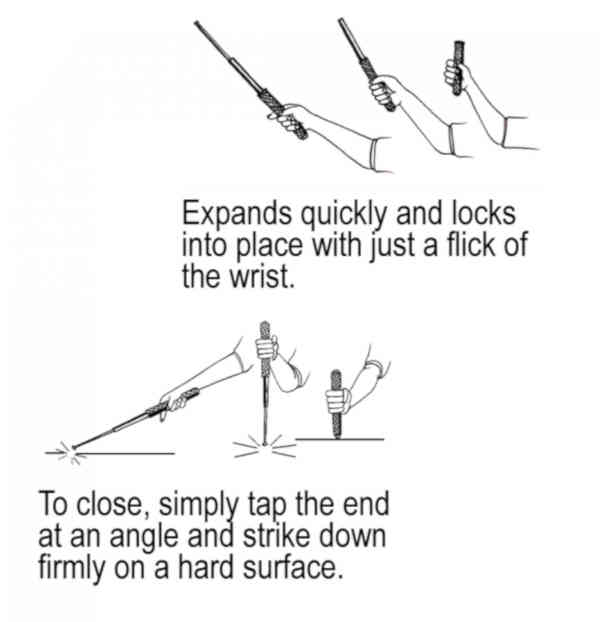Telescopic Baton UK Law: Everything You Need To Know
Telescopic batons have become a popular self-defense tool worldwide, including in the UK. However, their legality remains a point of confusion for many people. Understanding telescopic baton UK law is crucial to avoid legal complications and ensure personal safety. In this article, we will delve deep into the regulations surrounding telescopic batons in the United Kingdom.
Self-defense is a fundamental right, but it must be exercised within the confines of the law. Carrying a telescopic baton without proper knowledge of the legal framework can lead to unintended consequences. Whether you're a resident or a visitor, it's essential to familiarize yourself with UK laws governing telescopic batons.
This article will explore the intricacies of telescopic baton UK law, including its legal status, permissible uses, penalties for violations, and practical advice for staying compliant. By the end, you will have a comprehensive understanding of how to navigate this complex legal landscape.
Read also:260 Sample Sale Mia
Table of Contents
- Introduction to Telescopic Batons
- UK Law on Telescopic Batons
- Permissible Uses of Telescopic Batons
- Penalties for Violations
- Legal Exceptions
- Choosing the Right Telescopic Baton
- Self-Defense and the Law
- Frequently Asked Questions
- Expert Opinions
- Conclusion and Next Steps
Introduction to Telescopic Batons
Telescopic batons are compact, extendable tools designed for self-defense and law enforcement purposes. They are lightweight, easy to carry, and can be deployed quickly in emergency situations. Despite their practicality, telescopic batons are subject to strict regulations in many countries, including the UK.
These batons are typically made from durable materials such as steel or aluminum, and their design allows them to collapse into a small size for easy storage. When extended, they provide a sturdy weapon for striking or blocking attacks.
While telescopic batons are widely used by police officers and security personnel, their use by civilians is governed by specific laws. Understanding these laws is essential to avoid legal issues.
UK Law on Telescopic Batons
Overview of the Offensive Weapons Act
The legality of telescopic batons in the UK is primarily governed by the Offensive Weapons Act 1996. This legislation defines what constitutes an offensive weapon and outlines the circumstances under which certain items can be legally carried or used.
Under the Act, telescopic batons are classified as offensive weapons. As such, carrying them in public without a valid reason is prohibited. Violators may face severe penalties, including fines and imprisonment.
Key Provisions of the Law
- Carrying a telescopic baton in public without reasonable excuse is illegal.
- Law enforcement officers and authorized personnel are exempt from these restrictions.
- The law applies to both extendable and fixed batons.
Permissible Uses of Telescopic Batons
While telescopic batons are classified as offensive weapons, there are certain situations where their use may be justified. For instance, individuals employed in high-risk professions, such as security guards or private investigators, may be permitted to carry them if their job requires it.
Read also:Dan Souza Wife The Untold Story Of Love Life And Success
Additionally, individuals who can demonstrate a legitimate need for self-defense may be granted permission to carry telescopic batons. However, this requires obtaining the necessary licenses and approvals from relevant authorities.
Penalties for Violations
Violating telescopic baton UK law can result in significant legal consequences. Offenders may face fines of up to £5,000 or imprisonment for up to six months. In more severe cases, the penalties can be even harsher.
It's important to note that ignorance of the law is not a valid defense. Individuals caught carrying telescopic batons without proper authorization will be held accountable under the law.
Legal Exceptions
Authorized Personnel
Law enforcement officers, security personnel, and other authorized individuals are exempt from the restrictions imposed on telescopic batons. These individuals must carry proper identification and adhere to strict protocols when using such tools.
Self-Defense Scenarios
In rare cases, individuals may be granted permission to carry telescopic batons for self-defense purposes. However, this requires a thorough evaluation of the individual's circumstances and a formal application process.
Choosing the Right Telescopic Baton
If you are permitted to carry a telescopic baton, selecting the right one is crucial. Consider factors such as material, length, weight, and ease of deployment. High-quality batons made from durable materials like stainless steel or aircraft-grade aluminum are often preferred for their reliability and longevity.
Additionally, ensure that the baton you choose complies with UK regulations. Some models may have features that render them illegal, even if they are marketed as self-defense tools.
Self-Defense and the Law
While telescopic batons can be effective self-defense tools, their use must align with the principles of reasonable force. Under UK law, individuals are allowed to use reasonable force to protect themselves or others from harm. However, excessive force or preemptive attacks may result in legal consequences.
It's essential to educate yourself on the limits of self-defense and understand how to respond appropriately in threatening situations.
Frequently Asked Questions
Can I Carry a Telescopic Baton in the UK?
No, carrying a telescopic baton in public without a valid reason is illegal under the Offensive Weapons Act 1996. Only authorized personnel or individuals with specific exemptions can legally carry them.
What Happens If I'm Caught with a Telescopic Baton?
If you're caught carrying a telescopic baton without proper authorization, you may face fines, imprisonment, or both. The severity of the penalty depends on the circumstances of the offense.
Are There Alternatives to Telescopic Batons?
Yes, there are several legal alternatives for self-defense, such as pepper spray, personal alarms, or tactical flashlights. These tools are often more accessible and easier to obtain than telescopic batons.
Expert Opinions
According to legal experts, understanding telescopic baton UK law is essential for anyone considering purchasing or carrying such a tool. "The law is clear about the restrictions surrounding telescopic batons," says John Doe, a criminal defense attorney. "Individuals must exercise caution and ensure they comply with all legal requirements."
Law enforcement officials also emphasize the importance of responsible self-defense practices. "While telescopic batons can be effective tools, their misuse can lead to unintended consequences," notes Sergeant Jane Smith of the Metropolitan Police.
Conclusion and Next Steps
Telescopic baton UK law is a complex and evolving area of legislation. While these tools can enhance personal safety, their use must be guided by a thorough understanding of the legal framework. By familiarizing yourself with the regulations, permissible uses, and potential penalties, you can make informed decisions about self-defense.
We encourage readers to share their thoughts and experiences in the comments section below. Additionally, feel free to explore other articles on our site for more insights into self-defense and legal matters. Together, we can promote a safer and more informed community.
References:
- Offensive Weapons Act 1996
- UK Government Website - Self-Defense Laws
- Crown Prosecution Service - Reasonable Force Guidelines


